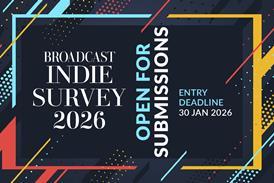The friction between Project Canvas and the Digital Television Group (DTG) was ramped up at the trade body’s summit last week.
The DTG turned on Canvas last month after members revealed concerns that partners behind the proposed IPTV joint venture had not fully engaged with the rest of the industry and were instead running a parallel specifi cation process.
With a DTG-specified Connected TV standard still likely to be the core of any future Canvas devices, the argument again reared its head during a tense Q&A session at the summit on Friday (5 March 2010).
One delegate accused Canvas of taking six months to unsuccessfully provide requested documents that would help inform the spec.
Richard Halton, BBC programming director, IPTV, admitted that Canvas needed to be “more engaged”, but said matching the resource of the DTG was “challenging.”
“The relationship is not straightforward. The BBC Trust was somewhat ambivalent [about the DTG’s role in its provisional conclusions],” he said. “That was right. But I think from a Canvas perspective, it is an absolutely critical relationship. By end of May, the Canvas team will be in a place to provide all documents required to the DTG working groups.”
To further smooth the process, Canvas has accepted a place on the DTG’s steering committee and is publishing materials on its website, projectcanvas.info.
DTG director general Richard Lindsay-Davies said: “We’re in close discussion with the BBC Trust about the documents that should be released.”
During the conference, the names of the companies developing Canvas-capable boxes were also revealed. They include Cisco, Technicolor, Humax LG, Sagem, Amino and TVOnics.
Project Canvas is a joint venture between the BBC, ITV, Channel 4, Five, Talk Talk and BT. Using an open platform set-top box, it will connect a TV set to the internet and allow third parties to develop apps.
The DTG’s membership is drawn from broadcasters, manufacturers, platform operators, retailers, trade bodies, charities and consumer groups.

























No comments yet